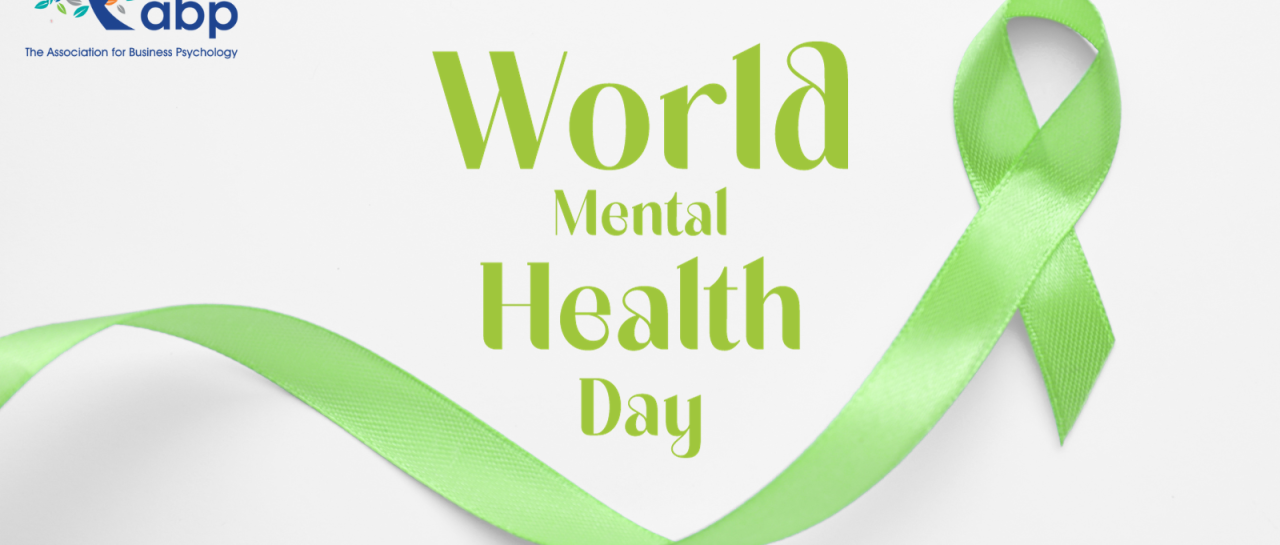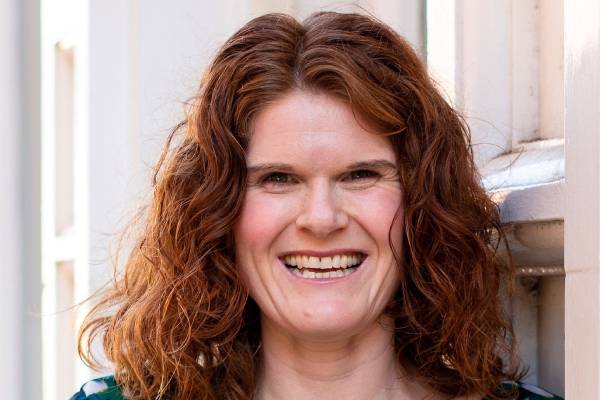Authored by Certified Business Psychologist Laura Howard. Certified Business Psychologist, Laura Howard, reflects on the webinar she recently delivered to ABP members. Below she outlines the main findings of her published research uncovering systematic barriers women face when being authentic as leaders. Importantly, she gives…

This World Mental Health Day, we want to draw your attention to the vital role senior leaders and employers play in fostering a culture of openness and support around mental health in the workplace. The outcomes of senior leadership disclosure of mental health lived experience can be a powerful catalyst for positive change, but they are only truly effective in an inclusive and supportive environment.
The Importance of Senior Leadership Disclosure
Many senior leaders may hesitate to share their mental health experiences due to concerns about vulnerability, stigma, and judgement. Historically, these worries were often justified. However, a new report sheds light on the significant benefits of senior leadership disclosure, alongside advice on how to manage the risks and potential burnout, both for individuals and organisations.
Key Findings from the Report:
The report, titled “Outcomes of Senior Leadership Disclosure of Mental Health Lived Experience,” analysed existing research on senior leader disclosures and conducted interviews with senior leaders who have shared their mental health experiences. Here are some key takeaways:
- A Ripple Effect: Senior leadership disclosure creates a positive ripple effect throughout the organisation. Leaders who shared their experiences inspired others to open up about their mental health, fostering a culture of trust and support.
The report states “‘This largely happened at a personal level, including within teams,’ the report notes. ‘Those who saw evidence of a more organisational ripple effect felt this was due to wider organisational efforts to create a safe and inclusive environment.’
- Supportive Environment: To ensure the success of disclosure initiatives, it’s essential to create a supportive and inclusive environment. Supportive managers and a culture that promotes mental health awareness are crucial.
The report notes that organisations that have a ‘high pressure/achievement culture, organisational stigma and established patterns of stigmatised or discriminatory behaviour, and having fixed expectations and norms around leadership and mental health’, will discourage individuals from making disclosures.
- Impact on Minorities: The impact of disclosure can vary among different groups. Women and individuals from gender minorities may face unique challenges, and organisations should create safe spaces for disclosure.
According to Rachel Lewis, managing partner at Affinity Health at Work, the impact of disclosing mental ill-health can vary significantly based on gender and minority status. She notes that when men open up about their mental health struggles, they are often viewed as breaking gender stereotypes, seen as courageous for sharing emotions that are not traditionally associated with masculinity. However, for women and individuals from gender minorities, disclosure can sometimes reinforce stereotypes, leading to a higher likelihood of negative outcomes.
‘Look at whether people who do disclose are protected and supported and whether your recruitment processes are fair. Is there even encouragement for wellbeing? Also, are there safe places for minority groups? Is there a good number of network groups set up so there are places they can disclose in a safe and measured way?’
- Disclosure Fatigue: Sharing mental health experiences can be emotionally taxing. Organisations should be mindful not to overburden individuals with repeated requests for disclosure.
Rachel adds ‘‘I have talked to organisations since that run pre-disclosure training, so if you are thinking about disclosing or going public about your experiences, then I would encourage you to undergo this training which will potentially talk about what could be the negative impacts of this and whether you are ready.’
- Supportive Communities: Initiatives like the InsideOut LeaderBoard provide a supportive community for senior leaders who disclose their mental health experiences.
Recommendations for Senior Leaders:
– Identify a supportive community of peers, both within and outside your organisation.
– Encourage your organisation to adopt a multi-level approach to mental health support.
– Advocate for additional resources to support mental health in your organisation.
Recommendations for Employers:
– Promote disclosure regularly and at all levels, ensuring positive consequences.
– Create opportunities for open discussions about mental health and wellbeing.
– Integrate mental health considerations into broader inclusion efforts.
The Way Forward
While the report’s findings underscore the positive impact of senior leadership disclosure, more research is needed to fully understand its effects. As we observe World Mental Health Day, let’s recognise the importance of nurturing a workplace culture where everyone feels safe to share their mental health experiences. Together, we can create healthier, more supportive work environments for all.
Let’s stand together for mental health this World Mental Health Day and beyond.



